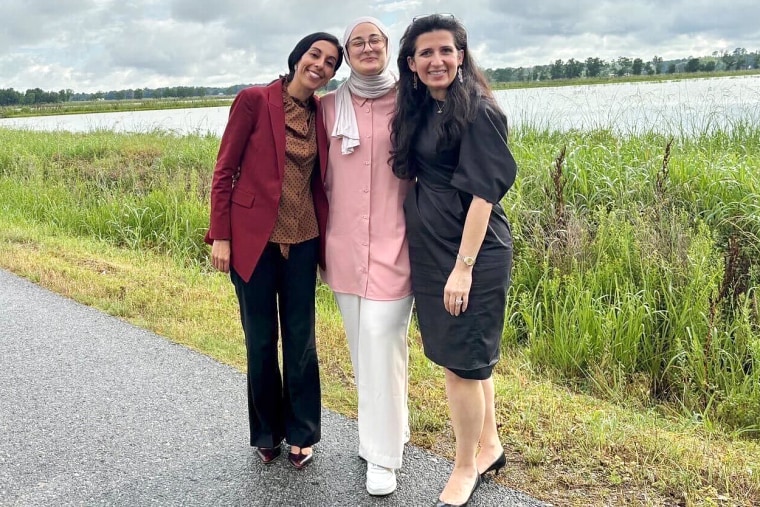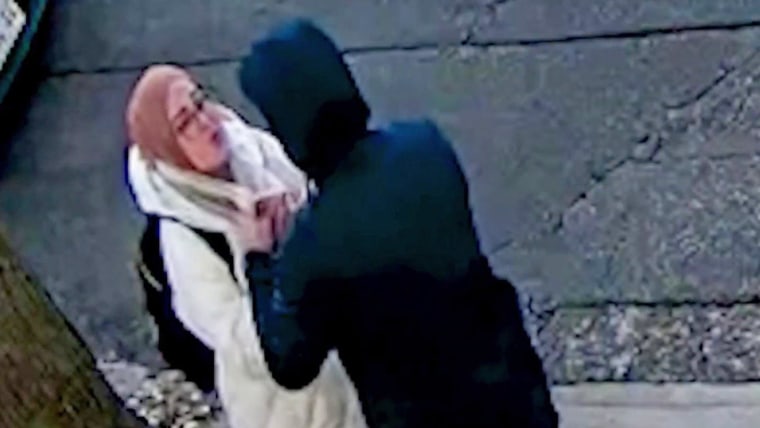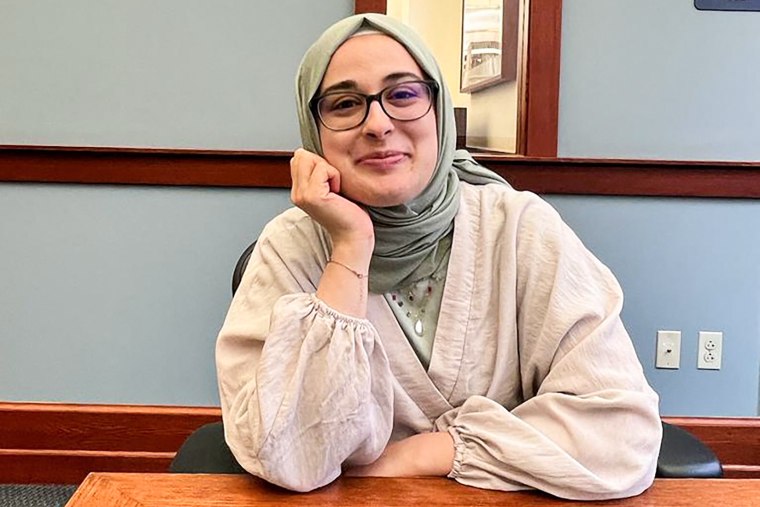Tufts University student Rumeysa Öztürk who had been held since she was detained by immigration agents in March was freed from ICE custody Friday evening, hours after a federal judge ordered her release.
"Öztürk is free to return to her home in Massachusetts. She’s also free to travel to Massachusetts and Vermont as she sees fit, and I am not going to put a travel restriction on her, because, frankly, I don’t find that she poses any risk of flight," Judge William K. Sessions III said earlier in the day.
The government was ordered to immediately release her, pending further proceedings on the merits of her habeas petition, the federal judge in Vermont said. She walked out from a detention center in Louisiana at roughly 6 p.m. Friday, hands on her heart as she faced reporters outside.

“Thank you so much. I am a little bit tired, so I will take some time to rest," she said.
One of her lawyers, Ramzi Kassem, said there's a "sense of joy" for Öztürk, her family, and her community now that she's free.
Speaking on MSNBC, he added, "Today is really a great day."
During the hearing, Öztürk appeared virtually, with her attorney Mahsa Khanbabai, from the South Louisiana ICE Processing Center.
Khanbabai said she was "relieved and ecstatic" by the news.
"Unfortunately, it is 45 days too late. She has been imprisoned all these days for simply writing an op-ed that called for human rights and dignity for the people in Palestine," she said in a statement. "When did speaking up against oppression become a crime? When did speaking up against genocide become something to be imprisoned for?"
Khanbabai said in a statement Friday evening that the government made an "11th-hour attempt" to make Öztürk wear a location-tracking ankle monitor as part of her release.
According to Öztürk’s legal team, the judge learned of the attempt by ICE and ordered a conference call with government lawyers and her attorneys at 4:50 p.m. to reaffirm his verbal order that she be released with no conditions.
Sessions subsequently filed a written order around 5:15 p.m. effecting Öztürk's release "without any form of Body-Worn GPS or other ICE monitoring at this time." He said the government had until Monday to submit proposed conditions of release that could be added if he agrees.
Öztürk was detained on the streets of a Boston suburb on March 25. Video of her arrest showed officers with the U.S. Department of Homeland Security and immigration authorities surrounding her on a sidewalk and grabbing her wrists. She screamed as she was led to a nearby SUV.

The Trump administration revoked Öztürk’s student visa in late March based on an assessment from the Department of Homeland Security and Immigration and Customs Enforcement that she "had been involved in associations that 'may undermine U.S. foreign policy by creating a hostile environment for Jewish students and indicating support for a designated terrorist organization.'"
It included her co-writing an op-ed "that found common cause with an organization that was later temporarily banned from campus, the Bureau of Consular Affairs approved revocation, effectively immediately," according to a State Department memo.
Öztürk wrote an op-ed last year in her student newspaper that was critical of Tufts’ response to the war in Gaza.
Earlier in her bail hearing, Öztürk had an asthma attack.
She had testified that the frequency, length, and intensity of her asthma attacks have increased since her detainment.
She told the Sessions that it has been negatively affecting her.
The doctoral student from Turkey had previously detailed her attacks in a declaration filed with the court. Attorney Jessie Rossman, who appeared in person for the hearing, told Sessions that her client has had more attacks beyond the eight documented in the declaration.
Rossman said she was "relieved" her client would soon be able to return to Massachusetts.

"For 45 days, Rümeysa has been detained in Louisiana — over 1300 miles from her friends, her community, and her lawyers. During that time, she has suffered regular and escalating asthma attacks," she said in a statement. "And at the same time, the government has failed to produce any justification for her detention."
During her testimony, Öztürk said that she was diagnosed with asthma in 2023 in her hometown in Turkey and had experienced attacks before her detainment.
During an episode, she said she experiences anxiety, exhaustion, chest tightness and coughing. They are usually brought on by environmental triggers as well as stress.
Tufts University medical center has helped her maintain her asthma, she said, noting that she has two inhalers, one for daily maintenance and another she uses when she has an attack.
Öztürk appeared to get upset as she testified about an attack at the Atlanta airport after she was detained. She was seen putting her hands over her chest and taking a deep breath.
"I was afraid, and I was crying," she told the court about the Atlanta incident.
After her testimony, Dr. Jessica McCannon, who has expertise in treating asthma, was called to the stand. While McCannon was speaking, Öztürk began coughing uncontrollably and appeared out of breath. Attorney Khanbabai, who was with Öztürk, said her client was having an asthma attack.
Öztürk rushed out of the room to get her inhaler.

